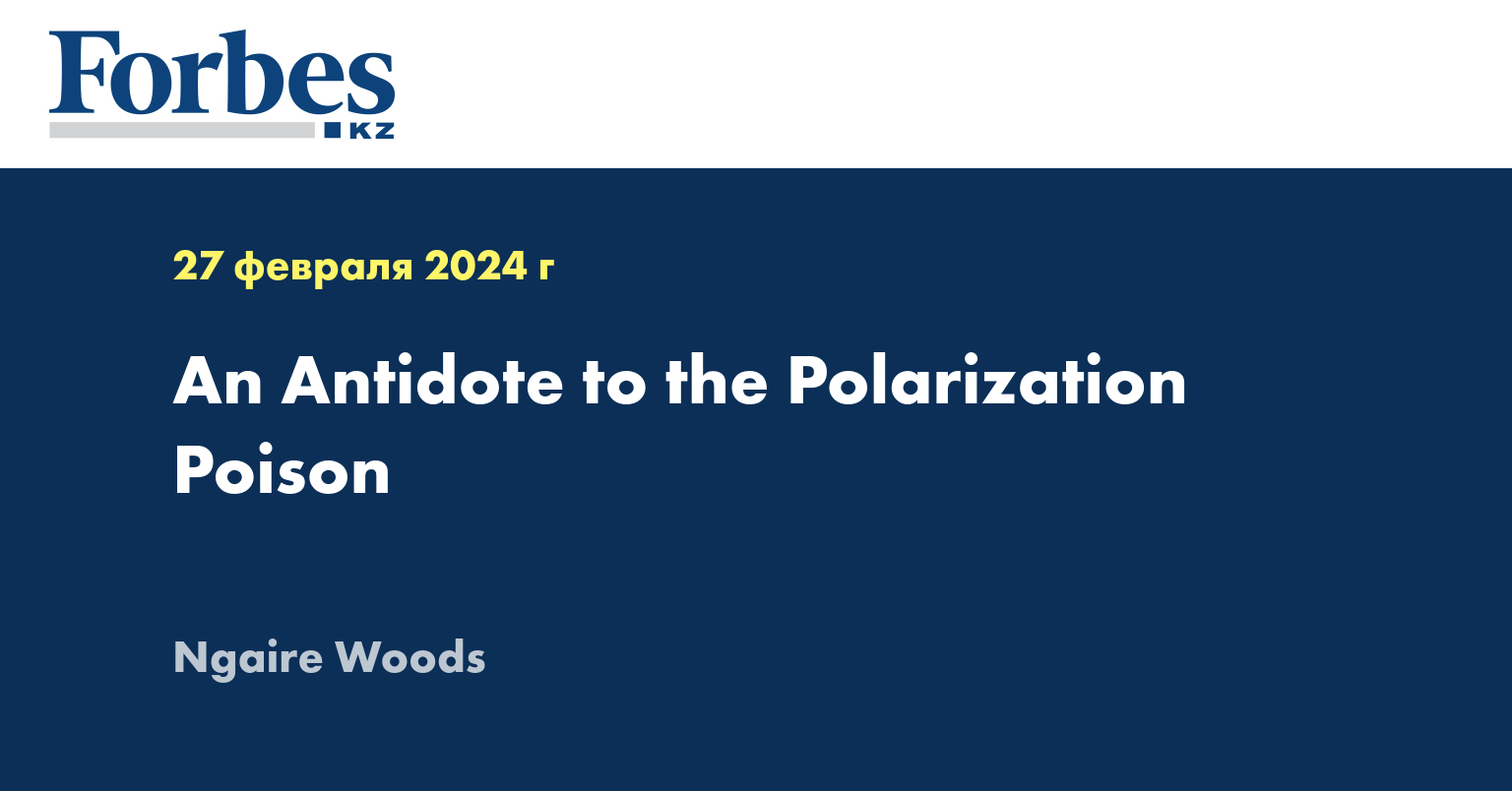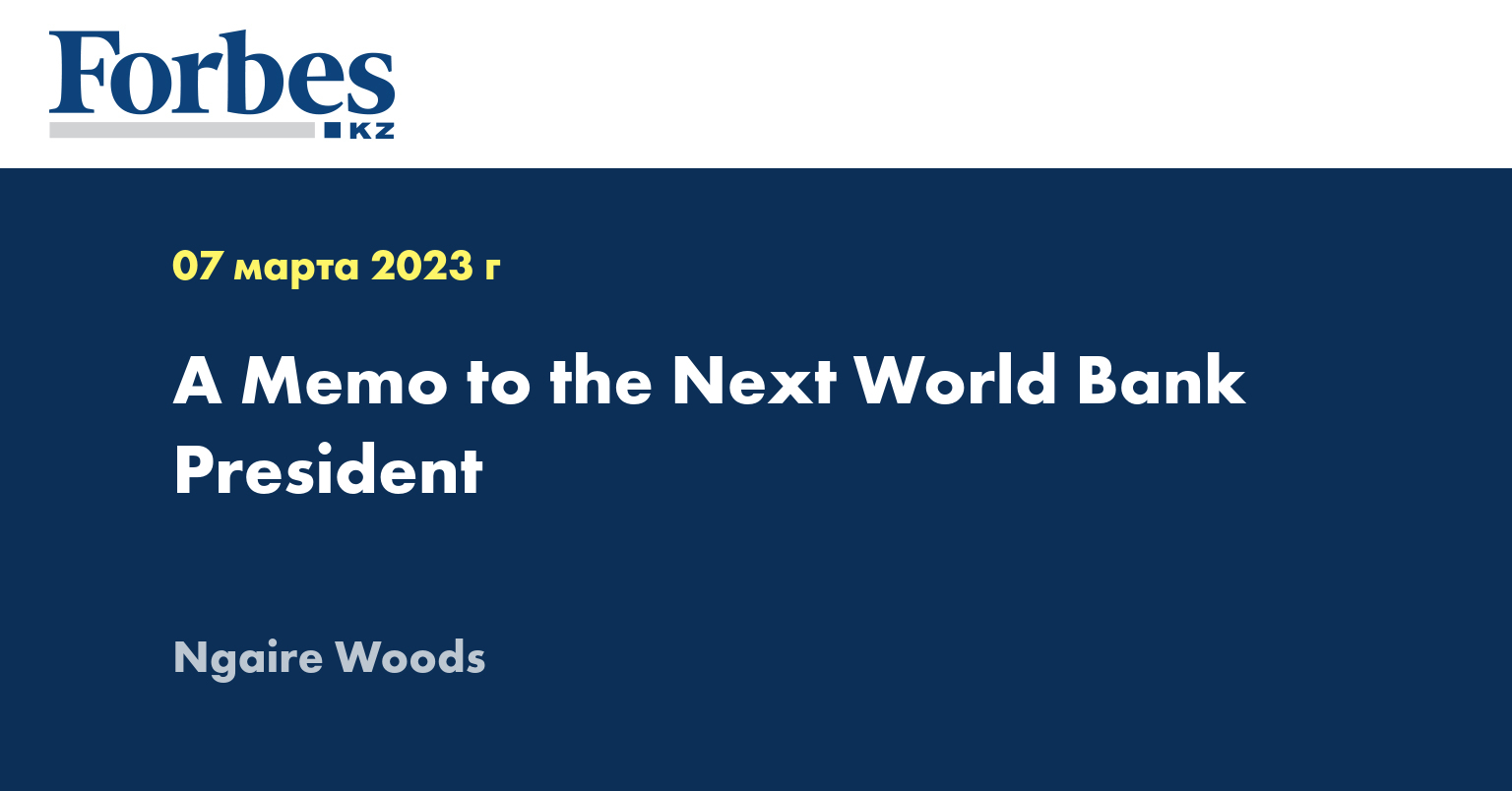In a year when some of the world’s largest democracies are holding elections, all too many are riven by deep political divisions
27 февраля 2024
5 мин.
21004
To the dismay of immunologists, virologists, and public-health experts, governments are done with learning the lessons of COVID-19
05 мая 2023
5 мин.
40423
The World Bank will soon pick a new president. With the world facing a confluence of climate, debt, energy, and security crises, the leadership change comes at a pivotal moment for the institution
07 марта 2023
5 мин.
60985
OXFORD – In a recent letter to her G20 colleagues, US Secretary of the Treasury Janet Yellen argued that a truly global COVID-19 vaccination program “is the strongest stimulus we can provide to the global economy.” With rich countries vaccinating their populations while low-income countries have yet to receive even paid-for vaccine doses, the world seems a long way from that goal. But the first shoots of solidarity are beginning to appear, and leaders must strengthen cooperation to nurture them
09 марта 2021
6 мин.
7458
OXFORD – COVID-19 has offered some tough but useful lessons about governance. Many wealthy countries did not manage the crisis as well as anticipated, whereas many poorer, populous, and vulnerable countries exceeded expectations. The difference raises important questions not just about public-health management but also about the state of governance in the world’s largest and oldest democracies
31 декабря 2020
6 мин.
10954
OXFORD – Before the coronavirus exploded into the news, a report by the World Health Organization warned that the world was not prepared for “a fast-moving, virulent respiratory pathogen pandemic” that could kill 50-80 million people, cause panic and instability, and seriously affect the global economy and trade
24 февраля 2020
5 мин.
7981
OXFORD – Elections and referenda are just two ways for people to have a say in how they are governed. Protesting is another, which is why rights of assembly and free speech are protected in most democracies
13 мая 2019
5 мин.
9464
Dramatic changes have swept the world since British voters decided in 2016 to leave the European Union. None of them could have been easily foreseen in 2016, but their occurrence makes avoiding a no-deal Brexit a matter of urgent national security for the UK
26 февраля 2019
5 мин.
9308
The World Bank will soon pick a new president. With the world facing a confluence of climate, debt, energy, and security crises, the leadership change comes at a pivotal moment for the institution
07 марта 2023
5 мин.
60985
To the dismay of immunologists, virologists, and public-health experts, governments are done with learning the lessons of COVID-19
05 мая 2023
5 мин.
40423
In a year when some of the world’s largest democracies are holding elections, all too many are riven by deep political divisions
27 февраля 2024
5 мин.
21004
OXFORD – COVID-19 has offered some tough but useful lessons about governance. Many wealthy countries did not manage the crisis as well as anticipated, whereas many poorer, populous, and vulnerable countries exceeded expectations. The difference raises important questions not just about public-health management but also about the state of governance in the world’s largest and oldest democracies
31 декабря 2020
6 мин.
10954
The past three weeks have given the world a stunning role reversal in global governance. The United States, the world’s long-time leader in forging international cooperation, has begun to express a unilateralist creed, striking fear into the hearts of many countries worldwide. And China, long reticent about multilateralism, has committed to upholding – even leading – international cooperation
25 февраля 2017
0
10632
Democratic governments in the West are increasingly losing their bearings. From the shift toward illiberalism in Poland and Hungary to the Brexit vote in the United Kingdom and Donald Trump’s victory in the United States’ presidential election, a particularly lethal strain of populism is infecting societies – and it is spreading
06 апреля 2017
0
9513
OXFORD – Elections and referenda are just two ways for people to have a say in how they are governed. Protesting is another, which is why rights of assembly and free speech are protected in most democracies
13 мая 2019
5 мин.
9464
Dramatic changes have swept the world since British voters decided in 2016 to leave the European Union. None of them could have been easily foreseen in 2016, but their occurrence makes avoiding a no-deal Brexit a matter of urgent national security for the UK
26 февраля 2019
5 мин.
9308
After decades of serving as the backbone of a rules-based global order, the United States, under President Donald Trump, is touting an “America First” agenda that extols narrow economic nationalism and distrust of international institutions and agreements. But a new type of international cooperation may be emerging – one that works around Trump
02 марта 2018
5 мин.
8840
As the world’s financial leaders gather for the International Monetary Fund and World Bank spring meetings, many working people around the world are demanding radical change, because they sense that their voices are not being heard. Those who are supposed to represent them should not ignore this anger and frustration any longer
10 мая 2017
0
8150
OXFORD – Elections and referenda are just two ways for people to have a say in how they are governed. Protesting is another, which is why rights of assembly and free speech are protected in most democracies
13 мая 2019
5 мин.
9464
Between escalating trade disputes and the divisions at the G7’s summit this month, the breakdown of global governance has become starkly apparent. The United States can no longer be counted on to uphold, much less enforce, existing rules, and countries more broadly cannot be assumed to agree on, much less adhere to, a common set of norms. Does this mean the rules-based world order is doomed?
04 июля 2018
5 мин.
6651
“Don’t get mad, get even.” That aphorism needs to become the new norm in democratic politics across Europe, Latin America, Asia, and Africa. Rather than complaining about populist successes, established political parties should take a page from the populist playbook. Three lessons, in particular, cry out for attention
20 апреля 2018
5 мин.
7118
Dramatic changes have swept the world since British voters decided in 2016 to leave the European Union. None of them could have been easily foreseen in 2016, but their occurrence makes avoiding a no-deal Brexit a matter of urgent national security for the UK
26 февраля 2019
5 мин.
9308
After decades of serving as the backbone of a rules-based global order, the United States, under President Donald Trump, is touting an “America First” agenda that extols narrow economic nationalism and distrust of international institutions and agreements. But a new type of international cooperation may be emerging – one that works around Trump
02 марта 2018
5 мин.
8840
Now that British Prime Minister Theresa May, facing certain defeat, has postponed Parliament’s vote on the deal she concluded with the European Union last month on the United Kingdom’s departure from the bloc, the case for a “people’s vote” – a second Brexit referendum – is gaining ground. But is a referendum really the right mechanism for settling political issues that the people’s elected representatives cannot or will not?
24 декабря 2018
5 мин.
8054
The World Bank will soon pick a new president. With the world facing a confluence of climate, debt, energy, and security crises, the leadership change comes at a pivotal moment for the institution
07 марта 2023
5 мин.
60985
Democratic governments in the West are increasingly losing their bearings. From the shift toward illiberalism in Poland and Hungary to the Brexit vote in the United Kingdom and Donald Trump’s victory in the United States’ presidential election, a particularly lethal strain of populism is infecting societies – and it is spreading
06 апреля 2017
0
9513
The United Kingdom is accelerating the rollout of a social security scheme only Ebenezer Scrooge could love. The “universal credit” program replaces six different welfare benefits – such as the child tax credit and the housing benefit – with one. The goal is to incentivize employment, and to create an online system that is easier to use.
09 января 2018
4 мин.
7111
OXFORD – In a recent letter to her G20 colleagues, US Secretary of the Treasury Janet Yellen argued that a truly global COVID-19 vaccination program “is the strongest stimulus we can provide to the global economy.” With rich countries vaccinating their populations while low-income countries have yet to receive even paid-for vaccine doses, the world seems a long way from that goal. But the first shoots of solidarity are beginning to appear, and leaders must strengthen cooperation to nurture them
09 марта 2021
6 мин.
7458
У автора нет статей, опубликованных в журнале Forbes Kazakhstan
Новости партнёров
Выбор редактора
Обсуждаемые в Соцсетях
Самые Читаемые




















